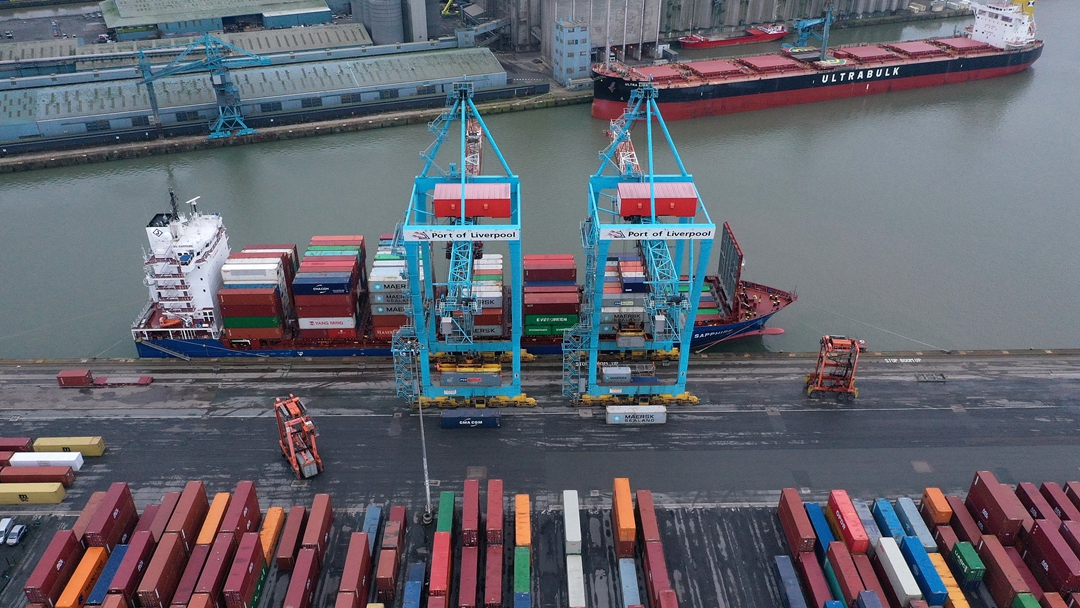
Shipping containers are stacked on the dockside at the Port of Liverpool, UK, December 10, 2020. /CFP
Shipping containers are stacked on the dockside at the Port of Liverpool, UK, December 10, 2020. /CFP
Britain will begin negotiations on Tuesday to join a trans-Pacific trade deal that it sees as crucial to its post-Brexit pivot away from Europe and towards geographically more distant but faster-growing economies.
The Comprehensive and Progressive Agreement for Trans-Pacific Partnership (CPTPP) removes 95 percent of tariffs between its members: Japan, Canada, Australia, Vietnam, New Zealand, Singapore, Mexico, Peru, Brunei, Chile and Malaysia.
Britain hopes to carve out a niche for itself in world trade as an exporter of premium consumer goods and professional services. Accession to the pact would supplement trade deals London is seeking, or has already agreed, with larger members.
"This part of the world is where Britain's greatest opportunities lie. We left the EU with the promise of deepening links with old allies and fast-growing consumer markets beyond Europe," said trade minister Liz Truss. "It is a glittering post-Brexit prize that I want us to seize."
The process of negotiating membership is largely about proving to existing members that Britain can meet the group's standards on tariff removal and trade liberalization, and then setting out details of how and when it will do so.
The government is expected to publish documents setting out its assessment of the benefits of membership on Tuesday, but highlighted cars and whisky as goods exports that would benefit.
The United States withdrew from an earlier planned trans-Pacific trade pact under former President Donald Trump. His successor, Joe Biden, spoke prior to his election last November about the possibility of renegotiating the deal, but has not laid out any firm plans since taking office.
Read more:
Analysis: What obstacles does China need to overcome to join CPTPP?
Source(s): Reuters

